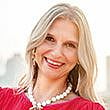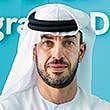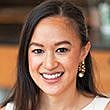Business lessons from Covid-19 start-ups
Entrepreneurs share their stories of starting a business in the UAE during the pandemic

“Transparency has become the foundation for consumer trust," says Nadège Noblet, Founder, Nanou
You have to be brave to launch a travel company during a lockdown, but Nadège Noblet went ahead with plans for Nanou, a full-service representation firm that provides tailor-made solutions for global travel brands to raise awareness among Middle Eastern outbound travellers.
“Starting during Covid-19 certainly presented challenges, but also offered opportunities as more than ever destinations and hotels need cost-effective, focused sales and marketing support, which are paramount for recovery,” the travel veteran, 45, tells GN Focus.
While domestic travel has surged during the pandemic, international destinations needed innovative campaigns to keep prospective travellers engaged and dreaming, she adds.
“Starting during Covid-19 certainly presented challenges, but also offered opportunities as more than ever destinations and hotels need cost-effective, focused sales and marketing support, which are paramount for recovery,”

People are now spending more time online, something that has worked in Nanou’s favour. “Digital interaction and engagement with customers have become even more important, presenting an opportunity to better understand consumer behaviour,” Noblet says. “The pandemic has proven that transparency has become the foundation for maintaining consumer trust moving forward.”
Dubai was a natural choice for her new business, the Frenchwoman says, with its start-up ecosystem support, both from the government and from expat communities. Through the French Business Council’s Club Synergy, for example, she networks with other stakeholders and builds new alliances.
“Travel, tourism and hospitality is a resilient industry. There is now a great need for governments and the private sector worldwide to break out of their silos and work together to develop one clear global regime to facilitate tourism revival,” says Noblet.
“Covid-19 has reinforced our model of continuous healthcare,' says Dr Ihsan Al Marzooqi, Co-Founder and MD, GluCare Integrated Diabetes Center
People with diabetes are more likely to have serious complications from Covid-19 — a particular concern in the UAE, where 15.4 per cent of the population or about 1 in 7 people are diabetic, according to the International Diabetes Federation.
But the launch of GluCare Integrated Diabetes Center, a Dubai clinic that monitors blood sugar levels remotely and in real time, has helped diabetics manage their condition holistically. “While Covid-19 affected our launch in terms of facility readiness, it has both accelerated and reinforced our new model of continuous healthcare for diabetics,” says Dr Ihsan Al Marzooqi, the clinic’s Co-Founder and Managing Director.
Government data shows 40 per cent of Covid-19 deaths in the UAE were associated with diabetes. “The irony of the situation is that the protective measures resulted in many diabetics missing routine care appointments and abandoning self-management protocols around exercise and diet,” says the 40-year-old UAE national. “Not long after opening, we saw many patients who desperately needed interventions in the form of care plan compliance. Now, under our model of care, we’re seeing results that have been nothing short of transformative.”
Being a start-up in healthcare was generally seen as a disadvantage since the landscape is dominated by network hospitals. However, we have seen immense support from stakeholders interested in our transformative care model. We believe remote continuous monitoring and the use of DTx are the future of medicine. As an Emirati, I am proud to have implemented both here in Dubai.

He says the Dubai Health Authority was extremely supportive in encouraging insurers to accept GluCare’s use of artificial intelligence, digital therapeutics (DTx), and remote monitoring within a healthcare setting.
“Being a start-up in healthcare was generally seen as a disadvantage since the landscape is dominated by network hospitals. However, we have seen immense support from stakeholders interested in our transformative care model. We believe remote continuous monitoring and the use of DTx are the future of medicine. As an Emirati, I am proud to have implemented both here in Dubai.”
“We changed our pricing strategy," says Mahra Al Shamsi, Founder, Asylum
Mahra Al Shamsi launched Asylum, a 6,000-square-foot obstacle course race (OCR) fitness facility in Ras Al Khaimah, as planned in October — despite recommendations to postpone the opening because of the coronavirus.
“I am generally a positive and hopeful person so I took the risk of sticking to the initial date, hoping Covid-19 would be long over by then,” says the Emirati athlete, endurance rider and English teacher.
She ticks off the numerous hurdles presented by the pandemic: “People were worried about being in public again. Salary cuts prevented gym commitments. My suppliers – both for fitness equipment and building materials – were out of stock all the time! And we faced visa problems for staff because of Covid-19 regulations.”
But obstacle rates are won through clever strategy, so Al Shamsi quickly adapted. “We put in strict Covid-19 preventive measures at the gym. We sanitise after each session, we make clients wipe down their equipment, and ensure social distancing. Regarding memberships, a discounted price offer has worked. We found new suppliers. We found a way around the visa problems too. It’s all about knowing the right people who can give you these life hacks!”
Al Shamsi, 33, took a loan and entrepreneurial support from the Khalifa Fund, who also provided advice, feedback, and entrepreneurial development. “I think the UAE’s start-up ecosystem was supportive, especially considering the pandemic. Almost every process was facilitated some way or another.”
“The world needs more hope and beauty amidst this chaos," says Anisha Oberoi, Founder and CEO, Secret Skin
While retail has been hit hard over the pandemic, the online shopping sector has thrived. Although Anisha Oberoi, founder and CEO of Secret Skin, was able to use her digital marketing experience with e-commerce retailer Amazon, her green beauty start-up was affected by other problems.
“I remember a bank refusing to allow us a particular payment gateway because we didn’t have an office and didn’t qualify with our flexi-desk license. It frustrated me — even Jeff Bezos started Amazon out of his garage.” The experience delayed the launch of her Sharjah-incorporated business, as did shipment deferrals because the products were not considered a Covid-19 priority. Nor could she organise events to spread awareness.
Leading up to the October launch, instead of influencers I reached out to about 20 friends, including a nutritionist, fashion designer, and fitness instructor, as well as our brand founders to spread the word. The organic campaign boosted social media impressions by over 940 per cent.

“Leading up to the October launch, instead of influencers I reached out to about 20 friends, including a nutritionist, fashion designer, and fitness instructor, as well as our brand founders to spread the word. The organic campaign boosted social media impressions by over 940 per cent.”
The Indian national moved to the UAE last year and was inspired to start the impact-driven platform as a long-time user of clean beauty products. “I was unhappy at having to pay 55-85 per cent overage in shipping and custom duties to buy a clean product from outside the UAE and wait at least seven days to receive it. I saw a gap and a sizeable market opportunity in the Mena region.”
In hindsight, she says she made the leap at the right time. “Covid-19 changed the world as we knew it. We are now standing between catastrophe and consciousness, each person responsible for the way we conserve and protect the environment. Secret Skin is my platform to channelise this ethos. The world needs more hope and beauty amidst this chaos; the timing felt right.”
“Covid-19 allowed us to validate our business concept," Julie Nguyen, Founder, Crunchmoms
The coronavirus stopped first-time founder Julie Nguyen from launching her two-day hackathon for mumpreneurs, but the digital transformation expert simply capitalised on the downturn to build stronger community support and drive deep engagement.
The pandemic put much more pressure on mums on top of everything else, and a virtual hackathon would not be a priority, especially if they’re already home-schooling all day. So we switched gears and refocused.

“When the world changed, so did our vision for Crunchmoms,” says the 33-year-old American, who also has a full-time job as an innovation and marketing professional and is a 24/7 wife and mother. She wants Crunchmoms to be the world’s most successful network for entrepreneurial and professional mothers.
The first response was an online event – until reality intervened. “The pandemic put much more pressure on mums on top of everything else, and a virtual hackathon would not be a priority, especially if they’re already home-schooling all day,” she says. “So, we switched gears and refocused.” While the hackathon hasn’t happened, 2020 has allowed for testing, building and adjusting operations without burning much cash.
“Starting Crunchmoms during the pandemic hasn’t been easy, but it has validated our business concept. Covid-19 has shown the world that mums are doing a lot and that the world must change to support them,” the Dubai resident says.
Nguyen describes the UAE start-up ecosystem as among the tightest and most supportive she has encountered, having experienced techie-friendly Austin, her home city, as well as Amsterdam, London, and Berlin. “The region is at the edge of something big. Professionals here are willing to take time out of their day to help others. We’re in it together here.”
Entrepreneurial mums are encouraged to join the Crunchmoms Circle Facebook group or subscribe at Crunchmoms.com.
“Now is the best time to start an online business in the UAE," says Rowda Ali Aldiqqi, Founder, Creative Branding
Emirati entrepreneur Rowda Ali Aldiqqi, 29, has used the Covid-19 crisis as a springboard to develop innovative marketing solutions. She has launched her digital marketing company, Creative Branding, at Ras Al Khaimah Economic Zone in August, to help companies reinvent their brands in times of global uncertainty and keep up with their customers.
“Creative Branding is the result of working as a freelancer in the last few years after quitting my job in the government sector,” Rowda, a graduate of Applied Communication from the prestigious Higher Colleges of Technology, tells GN Focus.
In any business, whether small, medium, or large, a powerful marketing strategy can help drive growth. Owing to the pandemic, every business is now forced to communicate with their clients through social media, apps, emails, and phone calls.

“In any business, whether small, medium, or large, a powerful marketing strategy can help drive growth. Owing to the pandemic, every business is now forced to communicate with their clients through social media, apps, emails, and phone calls. This situation has encouraged us to create engaging content for various search platforms, social media and more, helping companies to connect with their consumers in a multitude of ways and stay ahead of their competitors in the market.”
Rowda has already reached out to many old businesses in the UAE and developed unique marketing concepts for them, generating awareness for their products and solutions and creating engagement with their clients. “We also develop customisable templates for posts, with texts, graphics and images, that anyone can use to create their own social media posts,” says Rowda, who completed her MBA earlier this year from University of Sharjah. “My father has been a big support in my entrepreneurial journey. He encouraged me to start my own business as well as complete my MBA. Thanks to this degree, I am now able to manage various aspects of the company, from finance and management to administration.”
Starting a business presents numerous challenges and Rowda had to overcome many hurdles to launch this company during Covid-19. “At the beginning it was difficult to get clients on board as well as to convince companies about the importance of using a digital marketing plan to support business transformation and company growth,” she says. Her company has dealt with over 15 clients in the past three months, ranging from service and manufacturing to legal and hospitality brands.
And for fellow entrepreneurs, Rowda has valuable tips. “Starting an online business is easy and you can start it with minimal investments. The pandemic is rapidly changing our behaviour towards online channels and now is the best time to start an online business in the UAE.”
By Chiranti Sengupta



